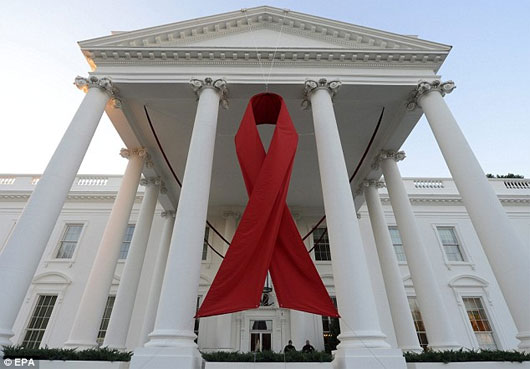HIV infection can still last up to 70 years
Researchers found that if a 20-year-old HIV-positive person applied antiretroviral therapy (ART) could live up to 70 years of age - that is still reaching life expectancy at the same level of life. average of Americans. However, life expectancy will be lower for those who have ever injected drugs and those who are not white.
According to research by scientists from the North American AIDS Research and Research Cooperation Organization and British Columbia HIV / AIDS Center, the lifespan of nearly 23,000 people with HIV antiretroviral therapy is calculated based on the ratio. Death in early to mid-2000s. Antiretroviral therapy is a treatment that includes a combination of at least 3 antiviral drugs to prevent the best HIV virus and prevent the development of HIV disease.
Participants in this study are in their 20s or older. Changes in life expectancy of HIV-positive people from 2000-2007 have been evaluated based on clinical features and social crises, such as the history of drug use and the number of immune cells. Translate.

The results of the study showed a longevity for people with HIV, while contributing to the evidence that people with HIV ART treatment have a life expectancy equal to the average population.
This research has just been published in the scientific journal PLOS ONE, discovering the lifespan of these people increased from 36.1 to 51.4 during the period 2000-2002 to 2006-2007. The life expectancy of both women and men is compared in all stages, except for the final period of 2006 to 2007.
Life expectancy of people who inject drugs, non-white people and those who start ART with low CD4 count - the number of cells that can activate the immune system - lower than those of start ART with higher CD4 counts.
According to Dailymail, the results of the study showed a longevity for people with HIV, while contributing more evidence that people with HIV ART treatment have a life expectancy equal to the average population.
In addition, Dailymail said that for many years, doctors have treated HIV patients with antiviral drugs, but the effectiveness sometimes remains inconsistent. However, a group of scientists in New York tried to find out whether using high-dose radiation would be more effective, and the results were encouraging.
Last week, researchers announced that patients treated with both antiviral and radioactive drugs had better results and no longer found HIV in the body.
Dr. Ekaterina Dadachova, from the Albert Einstein College of Medicine in the Bronx, New York, is behind this pioneering study. He investigated the possibility that this treatment could kill white blood cells infected with HIV.
Radioactive antibodies can also kill many HIV-infected cells in the brain, while less damaging to sophisticated systems in the brain.
- Signs of staph infection anyone should not be ignored
- How to prevent flu infection on aircraft
- Artificial nose helps to find blood infection bacteria
- In what ways is HIV transmitted?
- What is salmonellosis?
- Bananas are able to help prevent HIV infection
- There is already an HIV vaccine in normal people
- Mothers are more likely to die from E. coli infection
- Scary diseases from dog meat
- Prospects gel to help women fight HIV
- 5 effective ways to treat ear infections
- Find out the mechanism to maintain HIV infection
 Green tea cleans teeth better than mouthwash?
Green tea cleans teeth better than mouthwash? Death kiss: This is why you should not let anyone kiss your baby's lips
Death kiss: This is why you should not let anyone kiss your baby's lips What is salmonellosis?
What is salmonellosis? Caution should be exercised when using aloe vera through eating and drinking
Caution should be exercised when using aloe vera through eating and drinking Changing patterns of HIV infection in Vietnam
Changing patterns of HIV infection in Vietnam  HIV vaccine becomes a reality, new hope for millions of people has come
HIV vaccine becomes a reality, new hope for millions of people has come  Scientists claim to be able to cut the HIV virus from cells
Scientists claim to be able to cut the HIV virus from cells  Discovered super-antibodies that can neutralize HIV
Discovered super-antibodies that can neutralize HIV  New method can cure AIDS with just one injection
New method can cure AIDS with just one injection  Gene-editing drug development can cure HIV/AIDS?
Gene-editing drug development can cure HIV/AIDS? 